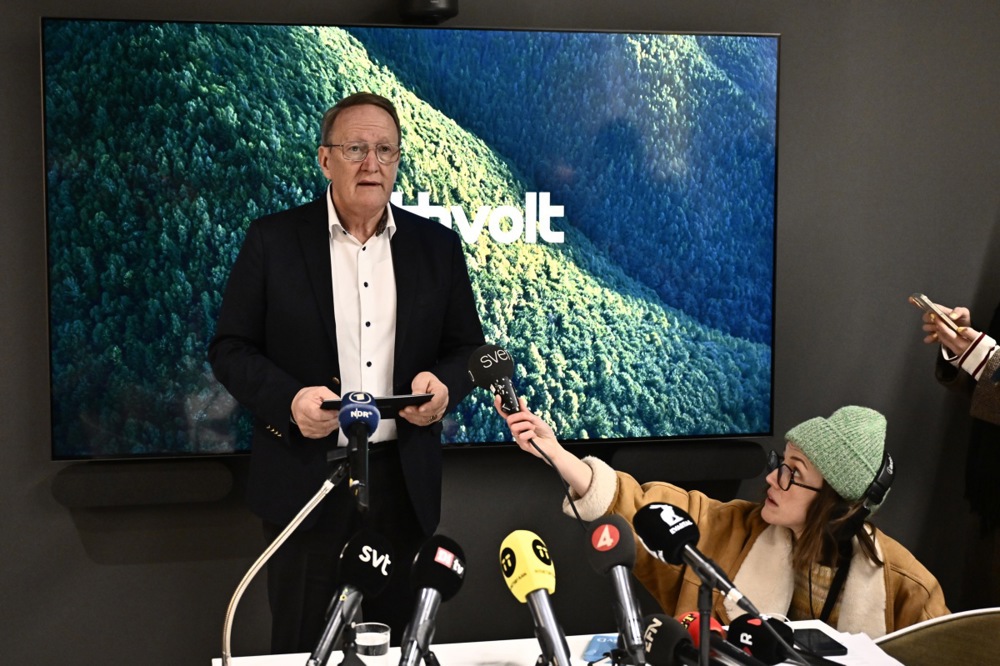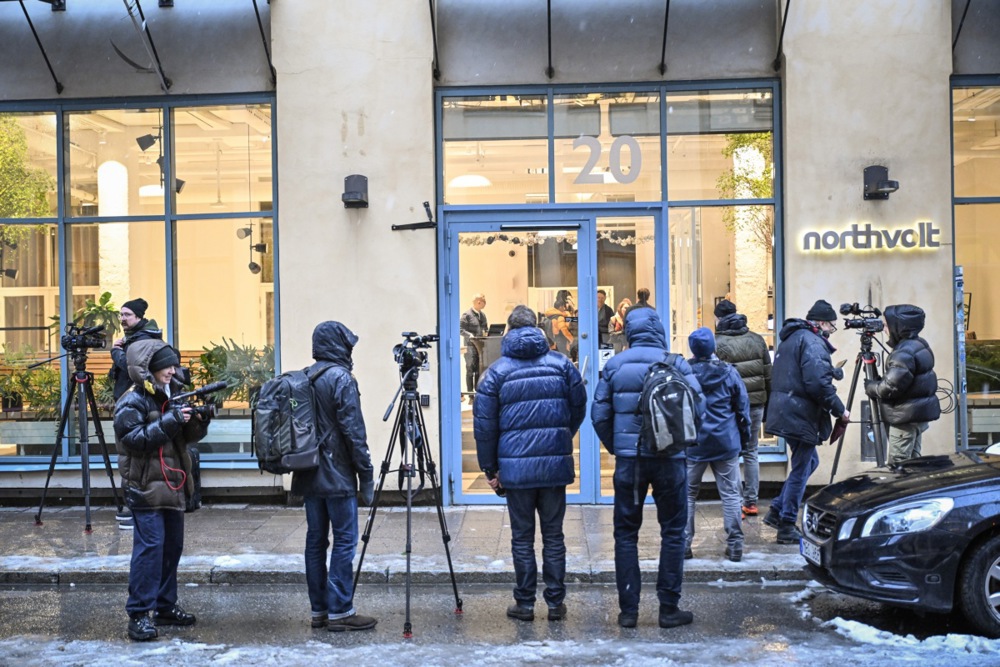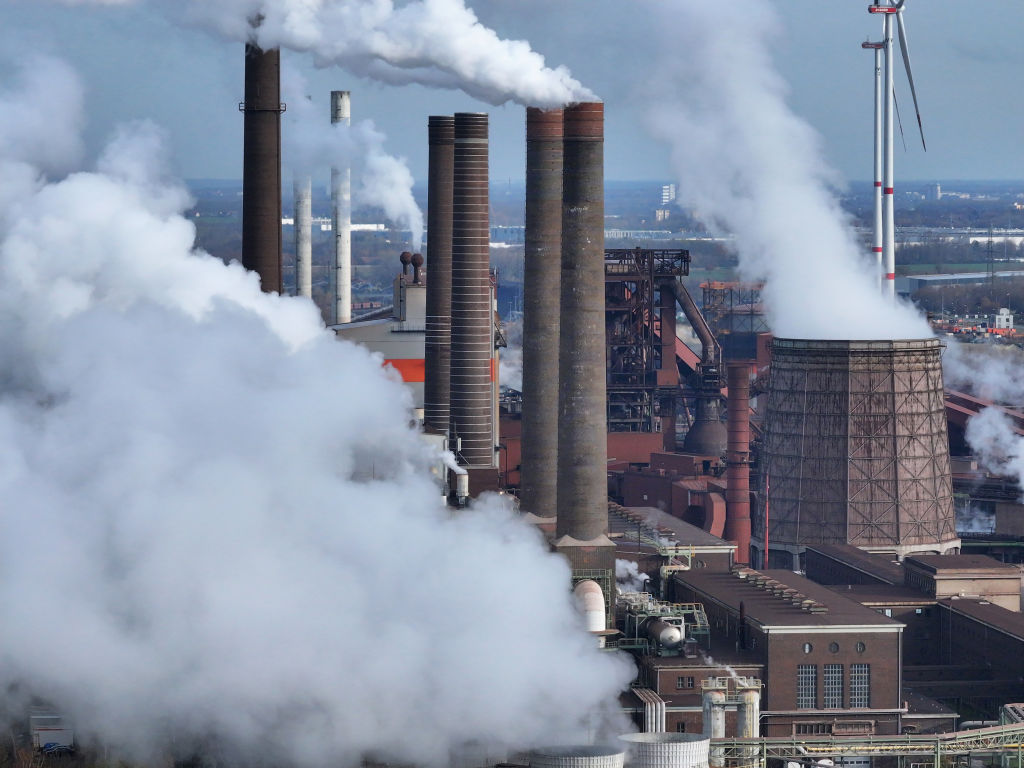German Christian Democrats have called for a committee of inquiry into the former Green Federal Minister of Economics, Robert Habeck, for “wasting billions of taxpayer’s money”.
Martin Huber the general secretary of the CSU, the Bavarian wing of the German Christian Democrats (CDU), has led the calls. On August 25, Habeck announced he would quit politics and work in academia.
The former minister “cannot seriously expect that his misconduct as a minister will be forgotten with his resignation from the Bundestag,” Huber said about Habeck.
“Whether Northvolt, Intel or Wolfspeed, under Habeck, one scandal followed another.”
“A committee of inquiry must deal with how Habeck was able to burn billions of taxpayers’ money”, Huber told German news agency dpa.
He called Robert Habeck the “worst economics minister of all time.”
To install a committee of inquiry in the parliament, one quarter of deputies needs to approve it. As the Christian Democrats hold one third of the seats, the could establish it on their own.
Northvolt, a Swedish battery manufacturer, was set to build a major battery factory in Heide, Schleswig-Holstein, to support Germany’s green energy transition. The project was heavily backed by the German government under Habeck’s leadership as Minister of Economics.
The German federal government and the state of Schleswig-Holstein provided approximately €600 million in taxpayer-funded loans through the KfW (Kreditanstalt für Wiederaufbau), with an additional €700 million pledged in grants, totalling over €1.3 billion in planned support.
But in March 2025, the long troubled company declared insolvency. It is unclear whether public funds can be recovered.
Swedish electric battery battery maker Northvolt has filed for bankruptcy in Sweden after it was unable to find money to pay its taxes. https://t.co/Al2OcIcCpR
— Brussels Signal (@brusselssignal) March 13, 2025
Critics, including the Bundesrechnungshof (Federal Audit Office), accused Habeck’s ministry of systematically underestimating financial risks and approving the subsidies based on an overly optimistic PwC report from June 2023.
Similarly, Intel was slated to build a major semiconductor factory in Magdeburg, Germany, as part of Germany’s push to become a global chip manufacturing hub, a key priority for Habeck and Chancellor Olaf Scholz.
The German government committed €9.9 billion in subsidies for the €30 billion project, which was expected to create 3,000 jobs.
But in July 2025, Intel cancelled the Magdeburg factory, citing financial difficulties and an inability to compete in the AI chip market. The company had signalled delays earlier, and its broader struggles were known to German officials during negotiations.
Wolfspeed, a US semiconductor company, partnered with German automotive supplier ZF Friedrichshafen to build what was touted as the “world’s largest chip factory” in Ensdorf, Saarland.
The project was heavily promoted with financial incentives from the German government: up to €500 million according to the company’s CEO.
However, Wolfspeed faced financial difficulties and filed for bankruptcy on July 1, 2025, leading to the cancellation of the Ensdorf factory. The project’s failure also impacted ZF, which announced job cuts shortly afterward.
The Northvolt, Intel, and Wolfspeed cases are frequently cited together as evidence of Habeck’s flawed industrial policy. Critics argue that Habeck’s approach of using massive subsidies to steer markets ignored economic realities.
They claim he prioritised politically appealing “green” projects over sound financial judgment, leading to billions in lost taxpayer funds.
At the beginning of this week, newspaper Bild reported that Habeck would resign from the Bundestag on September 1.
He said he would work at various research institutions abroad, including Denmark and the USA. He had already announced his place to teach at the University of California, Berkeley in June.
His academic research is due to centre on two questions: “What will happen next in the fight for Liberal democracy?” and “What are the consequences of global warming?”
The younger brother of Germany’s vice-chancellor and economics minister Robert Habeck has come under fire for alleged wasteful spending of taxpayer money. https://t.co/pBy4IaiZmP
— Brussels Signal (@brusselssignal) February 3, 2025





